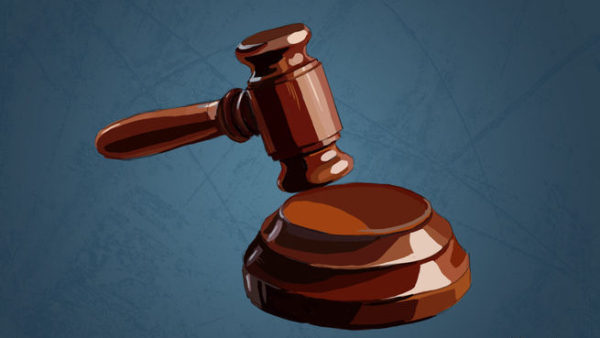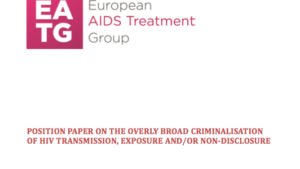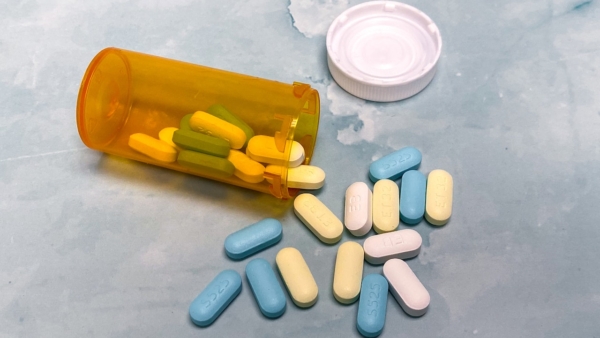Overview
Slovakia has two HIV-specific criminal laws, one criminalising intentional HIV ‘exposure’, and one criminalising negligent HIV ‘exposure’.
Section 165 sets the penalties at three to ten years’ imprisonment for intentional ‘exposure’, increased to seven to 12 years’ for ‘more serious’ acts or those against a protected person. Section 166 sets the penalty for negligent ‘exposure’ at one to five years’ imprisonment, increased to four to seven years’ in the case of more serious acts or those against a protected person. In both cases, where the ‘exposure’ leads to grievous bodily harm or death (i.e. causes transmission), the penalties are increased to ten to 15 years’ (section 165) and four to ten years’ (section 166).
In addition, Slovakia mandates HIV disclosure in both sexual and healthcare settings using other legislative frameworks, including Ministry of Health Professional guidance to ensure the prevention of infection caused by human immunodeficiency virus in the Slovak Republic no. 5650/99-A (published in the Bulletin of the Ministry of Health of the Slovak Republic, volume 6-9, dated 20 March 2000), and Ministry of Health Decree no. 585/2008 Coll. While there has been some reporting of this law and advocacy against it, this has not yet materialised into a legislative proposal to repeal these guidelines.
In its 2023 report, HIV Criminalisation in the EU, AIDS Action Europe cites Ministry of Interior data which recorded 19 criminal cases under the law from 2010-2021, with 13 being concluded. The circumstances of most of these cases are not known, however we have received three case reports in recent years.
In the first case decided in 2014, a sex worker living with HIV received a seven year prison sentence for alleged intentional HIV ‘exposure’ under section 165. According to the judgment, the woman ceased taking her antiretroviral medication but continued working and having sex with multiple clients before being arrested.
The second case in 2017 related to a failed extradition from Switzerland of a Slovakian national who was found guilty of intentional HIV ‘exposure’. It appears that the man fled Slovakia before being sentenced, and although he was detained in Switzerland, he was not extradited on the basis that his actions would not have been deemed criminal in the country.
The third case, reported in 2020, concerned a case of alleged HIV ‘exposure’ by a doctor who was undertaking medical procedures without the proper medical qualifications, allegedly creating a risk of HIV transmission. The outcome of the case is not known.
Laws
Criminal Code
Section 165. Intentional endangering by HIV
(1) Any person who intentionally puts another at risk of contracting human immunodeficiency virus infection shall be liable to a term of imprisonment of three to ten years.
(2) The offender shall be liable to a term of imprisonment of seven to twelve years if he commits the offense referred to in paragraph 1:
a) acting in a more serious manner, or
b) against a protected person.
(3) The offender shall be liable to a term of imprisonment of ten to fifteen years if he commits the offense referred to in paragraph 1 and causes grievous serious bodily harm or death through its commission
Section 166. Negligent endangering by HIV
(1) Any person who by negligence puts another at risk of contracting human immunodeficiency virus infection shall be liable to a term of imprisonment of one to five years.
(2) The offender shall be liable to a term of imprisonment of four to seven years if he commits the offense referred to in paragraph 1:
a) acting in a more serious manner, or
b) against a protected person.
(3) The offender shall be liable to a term of imprisonment of four to ten years if he commits the offense referred to in paragraph 1 and causes grievous serious bodily harm or death through its commission.
Acknowledgements
Thanks to Robert Hejzák of the Czech AIDS Help Society for his assistance confirming current relevant legislation.
HIV Justice Network's Positive Destinations
Visit the Slovakia page on Positive Destinations for information on regulations that restrict entry, stay, and residency based on HIV-positive status, as well as access to HIV treatment for non-nationals.




